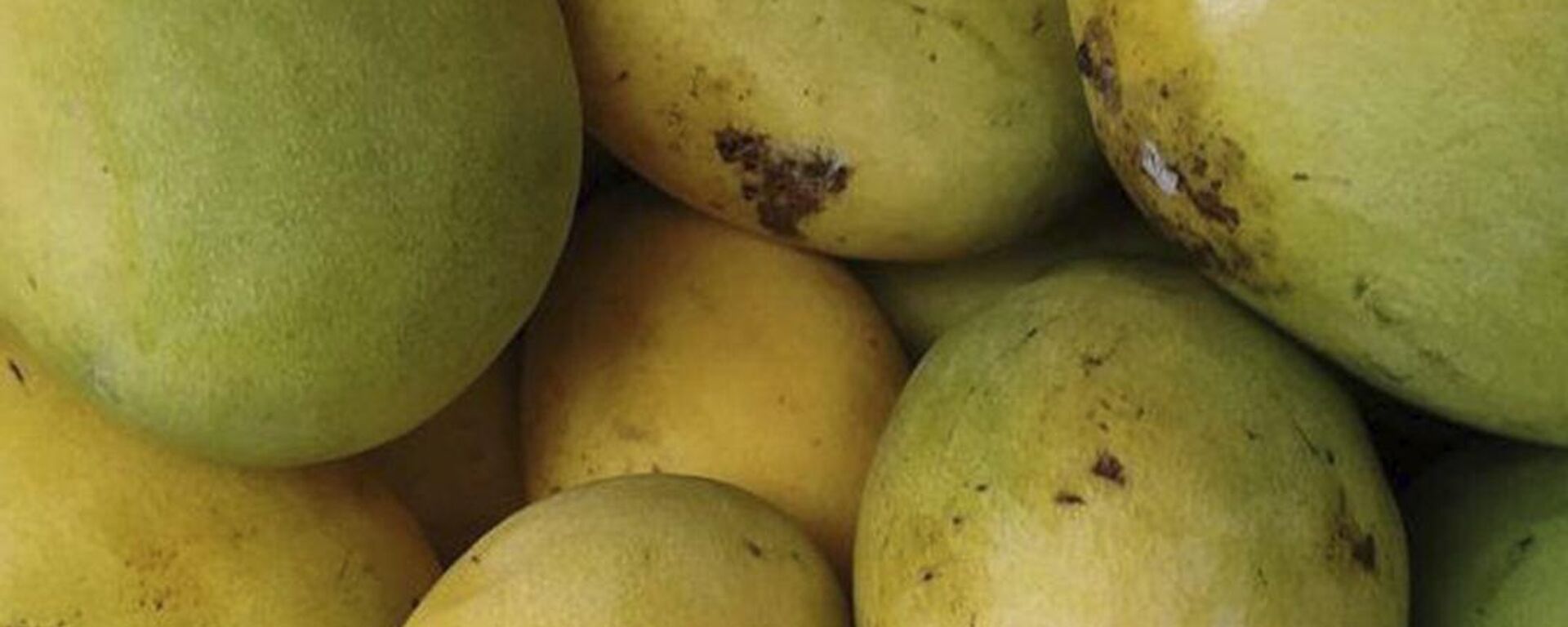World Bee Day: From Ending Poverty to Earning World Record, Indian BeeKeeper Reaps Sweet Returns
14:00 20.05.2023 (Updated: 14:22 22.05.2023)
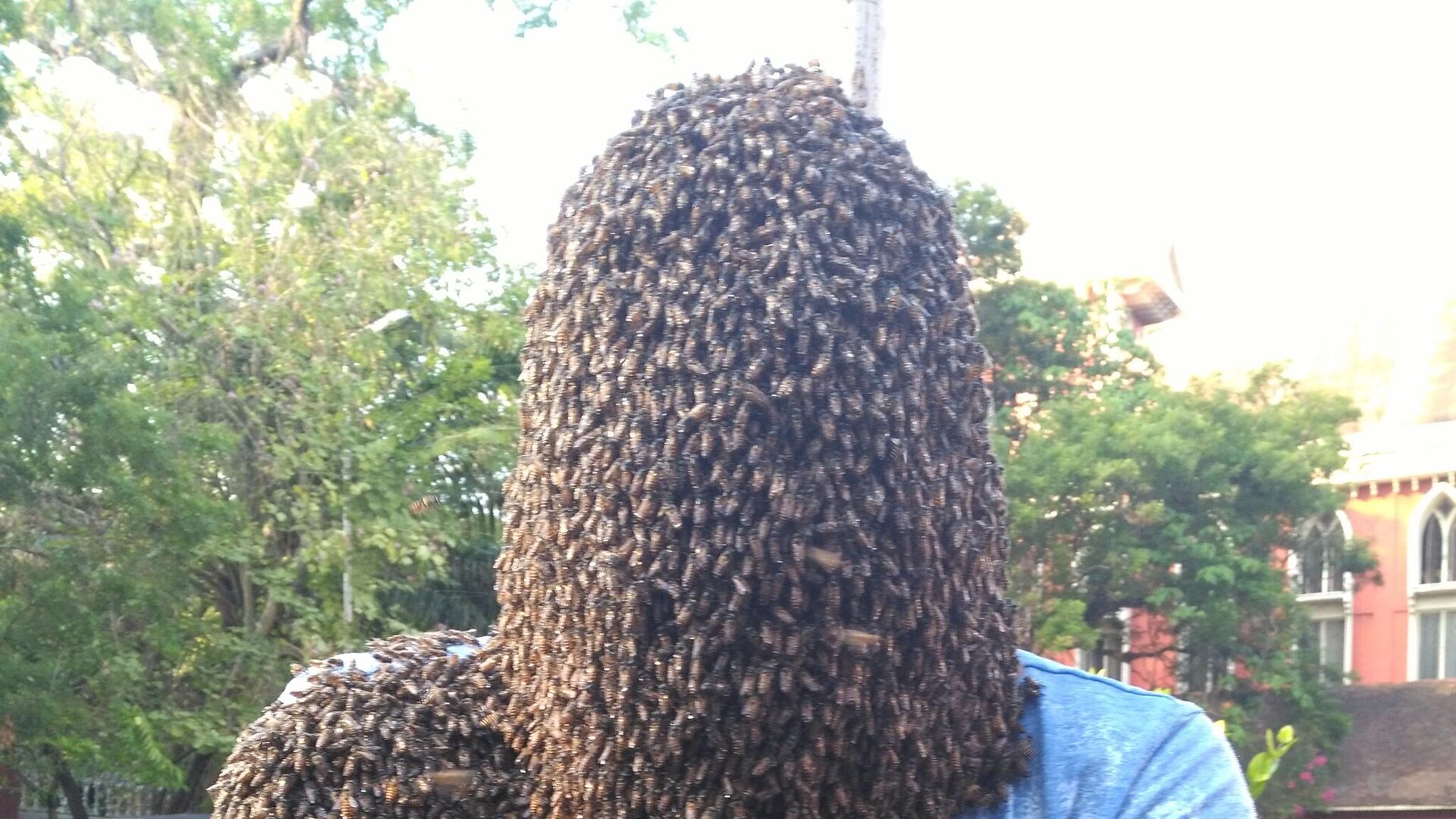
© Photo : Nature MS
Subscribe
The 27-year-old beekeeper Nature M.S. from India’s Kerala state shot to fame by winning Guinness World Records in 2018 for spending the longest time, four hours and 10 minutes, with his head and face covered with 60,000 bees.
Call him the ‘Guardian of Honey Bees’ or just a beekeeper, Nature M.S. from India’s Kerala state has been working on saving honey bees by creating colonies and promoting bee farming among people.
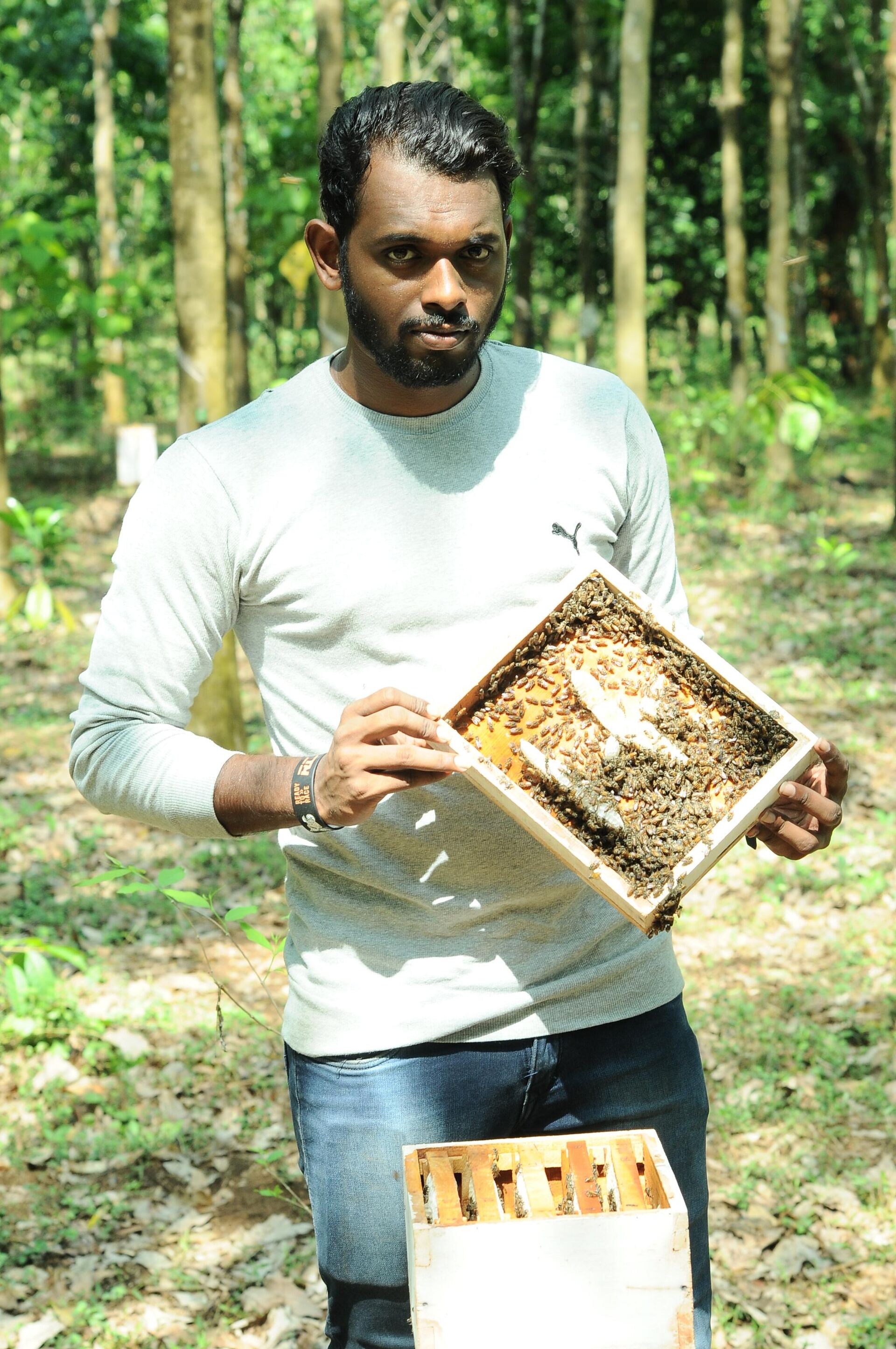
Beekeeper Nature M.S unveil his face behind swamp of bees
© Photo : Nature MS
Hailing from a family of beekeepers, Nature started learning about beekeeping at the age of five from his father and mentor M.R. Sajayakumar, who has worked in this profession for 40 years.
However, it wasn’t an easy start for his father back in the 1980s as they were dealing with poverty and resorted to bee farming in order to get three meals per day.
“My Father was born into a poor family in the early 80s. We are facing too much poverty, so much so that it was difficult for us to get three times meals," he told Sputnik.
So just to get three square meals, he took up a job guarding honey bee colonies in the forest. He was not getting any salary. He gradually learned about the beekeeping profession and since the 1980s, he has been doing this, Nature shared.
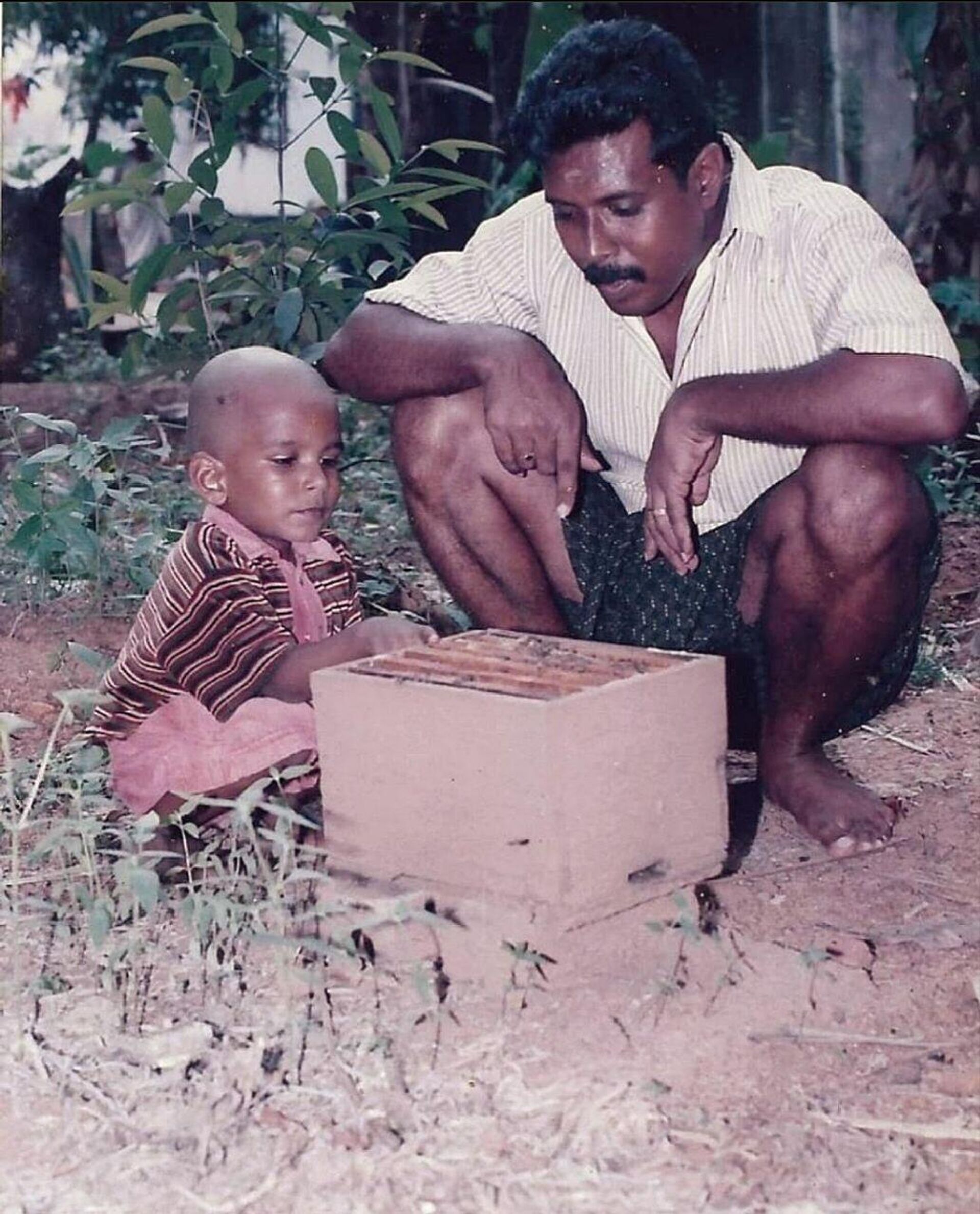
Young Nature M.S. learning about honey bee farming from his father Sajayakumar M.R. at Bharath Bee Keeping Centre in Kerala.
© Photo : Nature MS
Later on, his father started Bharath Bee Keeping Centre in the Avanisserry area in Kerala state's Trissur district, which is home to hundreds of thousands of bees and has around 2,000 bee colonies that produce almost 30 tons of honey and 15 kg of yield from bee farming.
His father’s love for honey bees was such that he named his four children Honey, Rani, Nature, and Nector.
“He gave us names around bees to show his commitment to beekeeping. It’s a symbol of peace, love, and dedication to bees in our names,” Nature said.
Nature’s family started reaping the sweet benefits of their toil and hard work to protect bees and their colonies.
“Our harsh bitter life is now filled with the sweetness of honey. My father believes the honeybees are the only ones that brought wealth and wellness into our lives,” Nature said.
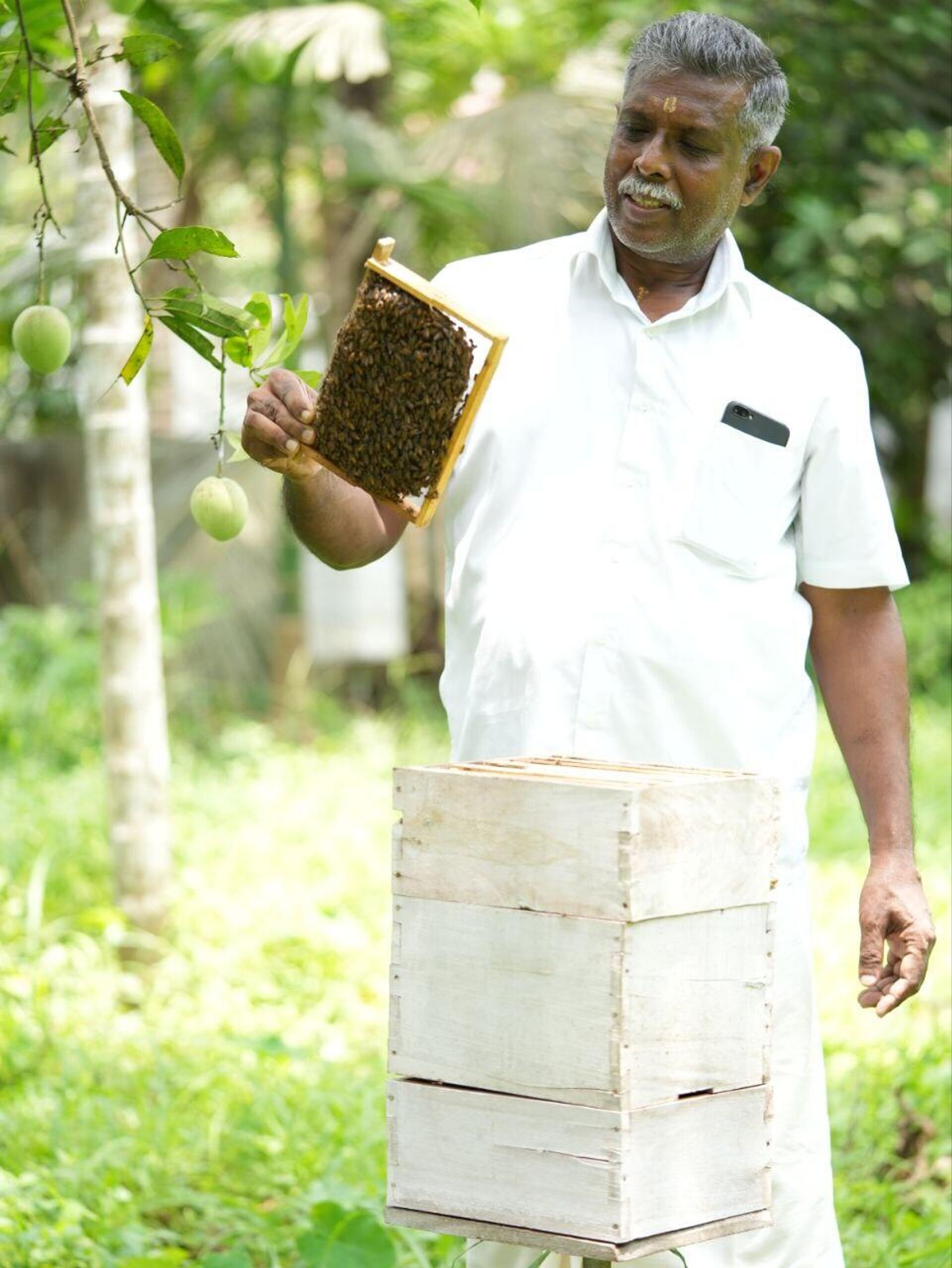
Sajayakumar M.R., a farmer and beekeeper, holding bee hive at his Bharath Bee Keeping Centre in Avanisserry area in Kerala state's Trissur district.
© Photo : Nature MS
Growing up with Bees
For Nature, bees are like his pets and childhood friends, and growing up with them was a great learning experience.
“I never feared bees as my father trained me how to handle them gently. I started by keeping a swarm of honey bees on my hands and then on my face. He always says that we should not see honeybees as a threat or an insect that attacks us.
"If you will be squeezing them or touch them very hard, bees will sting you. But if you are going to be gentle and take care of them like small babies, it will never sting you. With patience and love, you should do beekeeping,” Nature told Sputnik.
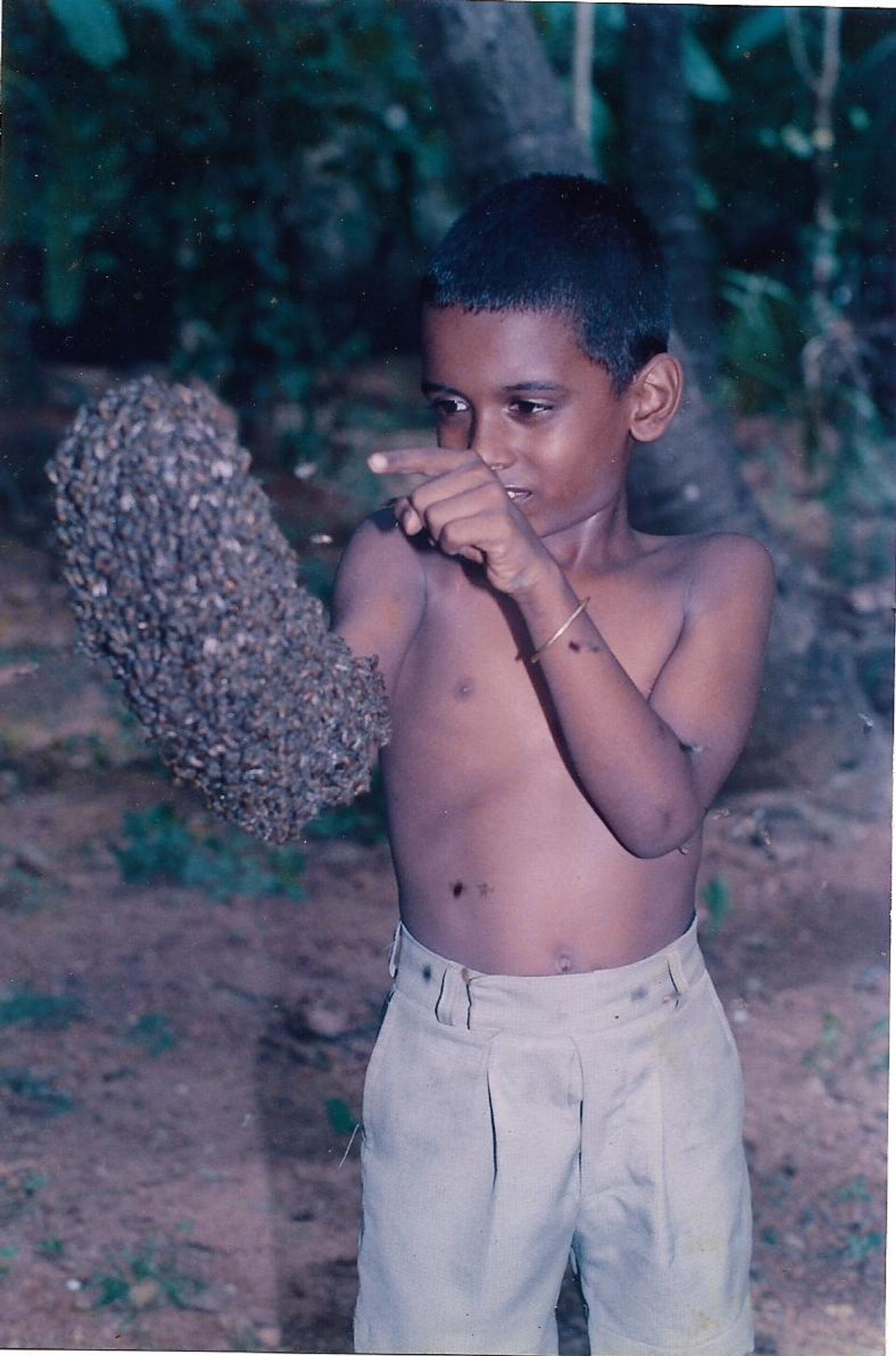
Nature M.S.' childhood picture of playing with bee swamp covering his right hand.
© Photo : Nature MS
Winning a World Record for a Bee Stunt
Nature's hobby became his passion, and started performing bee stunts to draw people’s attention and spread awareness about their importance.
He explained that to attack hundreds of honey bees, they take the queen bee and place it on themselves. They then release pheromones that attract the remaining worker bees around.
“I was doing the stunt at home but I first made my act public when I was in school in 2004. It was part of a campaign for World Bee Day. My friends got really scared and wondered how am I able to do this. I got so much appreciation and encouragement, that I decided to continue this further,” Nature said.
In 2017, Nature performed this stunt with around 60,000 bees and managed to set a new Guinness World Record for spending the longest time doing so, around four hours, and 10 minutes.
“I didn’t want to reveal my face and show the person behind the bees as I wanted to be seen in public as the face of the honeybees. I want to be the status symbol in the public that there is someone to protect the honeybees,” Nature said.
However, he couldn’t keep the secret for too long after winning the Guinness title.
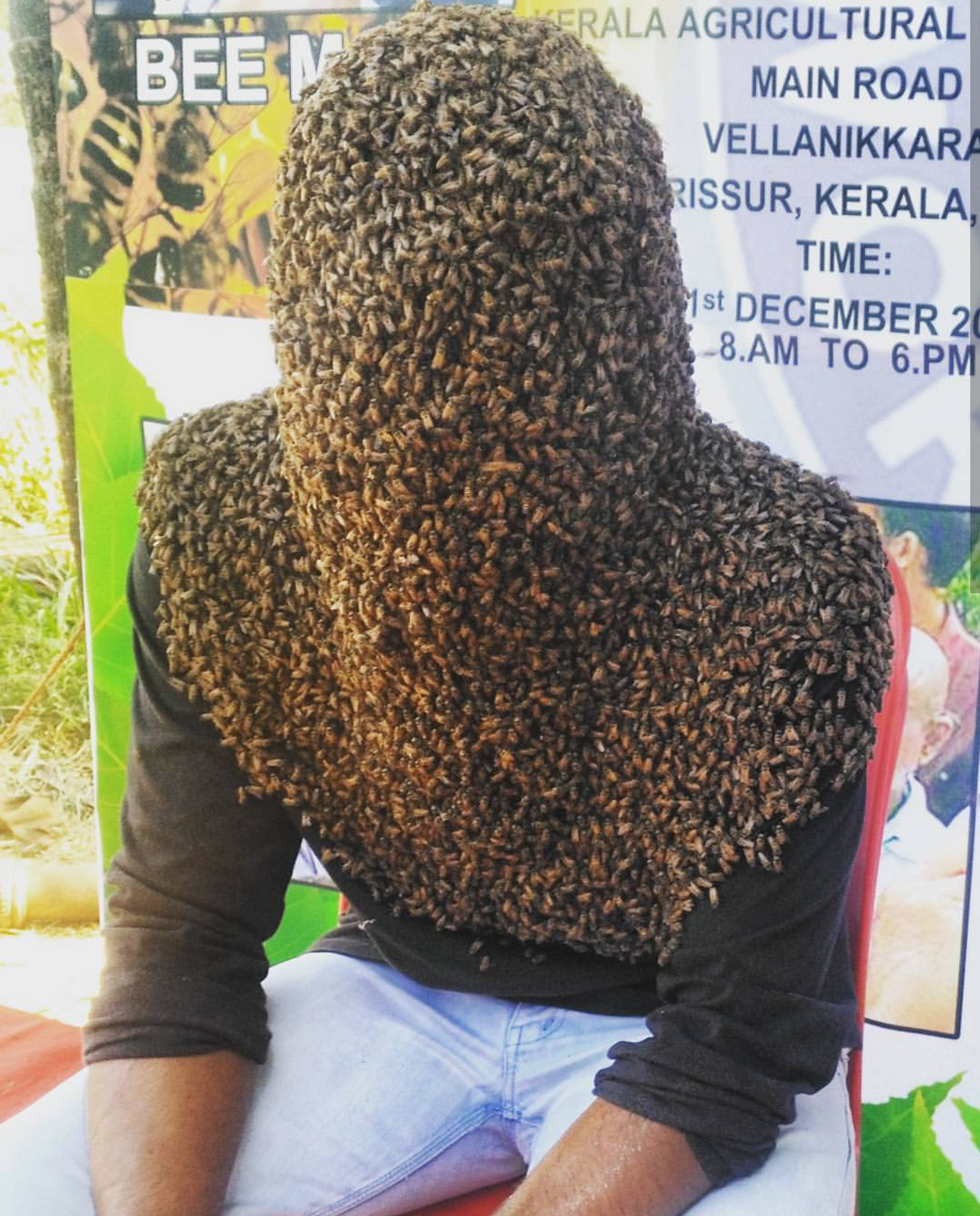
Beekeeper Nature M.S made Guinness World Records in 2018 for spending the longest duration of time with his head and face covered with 60,000 bees four hours, 10 minutes and five seconds.
© Photo : Nature MS
Pursuing Bee Farming as a Profession
After gaining first-hand experience from his father in beekeeping, Nature aspires to become a good researcher and bee farmer as well.
“My father advised me that if you want to be a very good researcher in this field, you should first be a good beekeeper and know the on-field problem. Then go to study and gather as much knowledge about honey bees. When I started my studies in bee farming, I realized that there is a lot of lack of knowledge in the research field and requires a lot of scope for improvement,” Nature said.
Nature, along with his father, started training other aspiring beekeepers on their farm and conducted awareness on how bees are so important for the ecosystem.
“There were so many incidents of people killing and removing bee hives from their homes or trees. People, who were scared of bees, started taking an interest in beekeeping after seeing my stunt. We started a free training program in 2003 and managed to train 600 beekeepers in our state,” Nature said.
Importance of Bees
Bees are not only important for the ecosystem helping in the pollination of crops and for the production of honey. They are also a great source of bee wax, which is a great substitute for petroleum jelly and is mostly used in cosmetics. Bees also produce Propolis extract, which is a gum-like substance used in coating the tablets.
“The most expensive product is the royal jelly which is the world's best cosmetic produced by the queen bees and known for its anti-aging property. Royal jelly is taken from bee colonies and costs around INR 3 Million. Bee venom is also very useful for the treatment of joint pains and arthritis,” Nature shared.
Challenges
Nature, who has been working as a Beekeeper since 2003, explained that in the last 20 years, there has been a 40% decline in the bee population, leading to bees leaving their colonies.
Citing his research, Nature shared that the electromagnetic waves from mobiles and towers make it difficult for the bees to orient themselves to the hives once they go out to get the nectar from the flowers.
“I have seen instances of colony collapse disorder near towers especially. It affects honey bees more as it actually alters their brain activity more,” Nature said.
Another big reason for colony collapse disorder is the use of modern pesticides on the plant which prevents bees from pollination in the area and can be deadly for them.
“Honey Bees are a great indicator of unpolluted areas and safe from radiation. Without honeybees, our ecosystem will collapse, and that area is not relatively safe for humans. So, it's our duty or responsibility to protect the honeybees and the biodiversity,” Nature said.
For beekeepers, keeping the bees alive during the off-season has become a big challenge.
“Especially in South India where we only have a two month bee farming season and the rest of the months are a prolonged monsoon season, from June or December. During that period, it becomes difficult for the bees to get good-quality nectar. So, we feed them with artificial sugar and shift their colony to a safer place,” Nature explained.
The biggest motto of Nature’s life is to get more and more people involved in beekeeping and improve the bee culture in the country.
“I want people to grow beautiful flowers in their gardens for the honeybees who are doing pollination,” Nature said.

